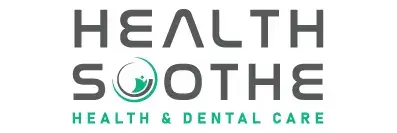When it comes to water hygiene in most modern businesses, one of the primary risks to be aware of is Legionnaires’ disease. While the first outbreak was almost 50 years ago, the disease is still definitely a risk in 2022.
Here, we take a closer look at what Legionnaires’ disease is exactly. We’ll look at the bacteria that causes the illness, and what businesses can do to ensure that the conditions that can lead to the bacteria’s rapid growth do not occur on their premises.
Legionnaires’ disease
Caused by the bacteria Legionella pneumophila, Legionnaires’ disease is a fatal form of atypical pneumonia. In almost all instances, it’s necessary that those who catch Legionnaires’ disease are hospitalised. Amongst the general population, the fatality rate is roughly 10%; among those with underlying health issues, that rises to 25%. Clearly, it’s not a disease to be taken lightly.
The first recorded outbreak of Legionnaires’ disease was also one of the most devastating. Occurring in a hotel in Philadelphia in 1976, over 150 were hospitalised and around 29 people lost their lives.
While it’s hard to get an exact figure, the Centre for Disease Control estimates 1https://www.cdc.gov/about/pdf/facts/cdcdiscovery/discoveries-series—legionnaires.pdf that between 8,000 and 18,000 people are hospitalised with Legionnaires’ every year, showing that it is still very much a risk in 2022.
How does Legionnaires’ disease spread?
To prevent Legionnaires’ disease from occurring, we first need to understand how it spreads. As a pulmonary infection, Legionnaires’ disease occurs when high concentrations of Legionella pneumophila enter an individual’s lungs.
The bacteria grows in water sources, and can be inhaled when water from affected water sources enters the air in a fine mist. This can happen at water taps, showers, swimming pools, and evaporative cooling systems.
What conditions support Legionella pneumophila growth?
Legionella pneumophila bacteria are frequently found in a wide variety of water sources. However, it only becomes an issue when they occur in high concentrations; this tends to happen in stagnant water sources between 25 and 45 degrees centigrade. Optimal growth rate is at body temperature.
A stagnant water source could be a water tank, but it could also be a pipe that isn’t regularly flushed through. To prevent this from happening, it’s necessary to conduct risk assessments and also have a management plan with a robust process to manage and mitigate the risk.
Legionella risk assessment
It is both a legal and practical requirement for a wide variety of organisations to carry out Legionella risk assessments. When booking a Legionella Risk Assessment, it may be necessary to seek the assistance of a professional external provider who is competent to perform an adequate assessment of the risk.
They will send an accredited Legionella risk assessor to your company, who will carry out a thorough inspection of the water systems located on your property.
Based on their findings, they will make recommendations on how to decrease the risk of Legionella pneumophila growth. This will include assigning responsibility to certain individuals to carry out checks, to ensure the ongoing safety of all water systems. This aspect is just part of a management plan that is required in order to comply with Health and Safety at Work act 1974 and in order to meet the requirements of the ACoP L8 and supporting documentation.

Isreal olabanji a dental assistant and public health professionals and has years of experience in assisting the dentist with all sorts of dental issues.
We regularly post timely and trustworthy medical information and news on Fitness, Dental care, Recipes, Child health, obstetrics, and more.
Share this post
Additional resources and citations
- 1https://www.cdc.gov/about/pdf/facts/cdcdiscovery/discoveries-series—legionnaires.pdf





